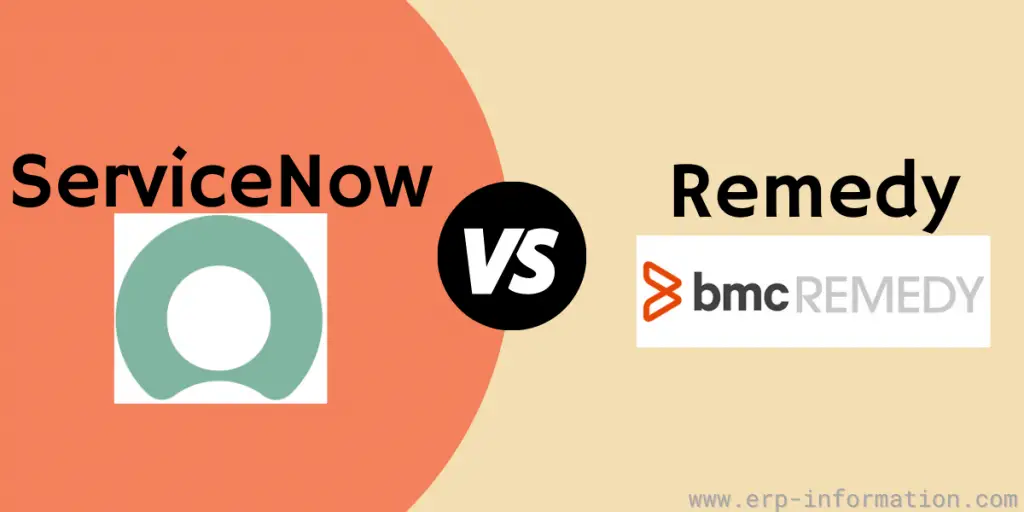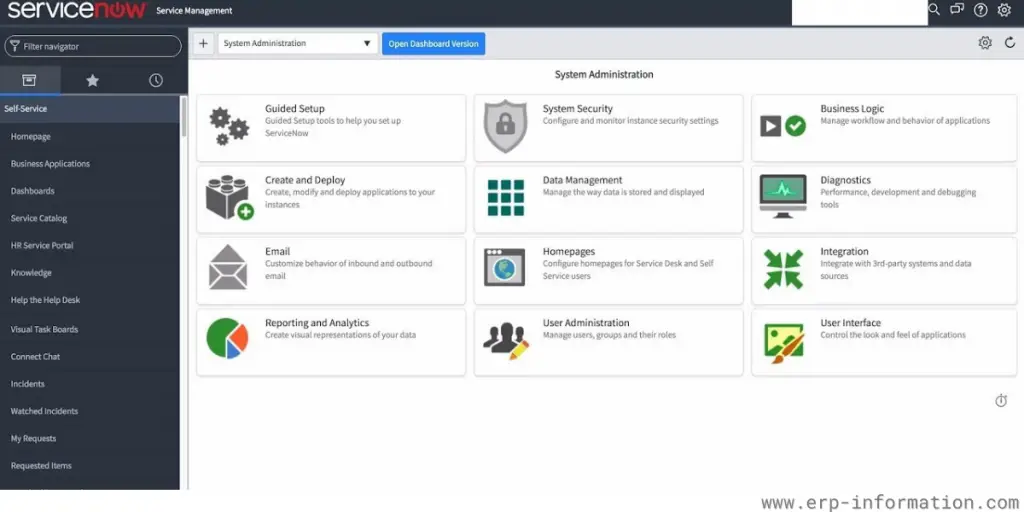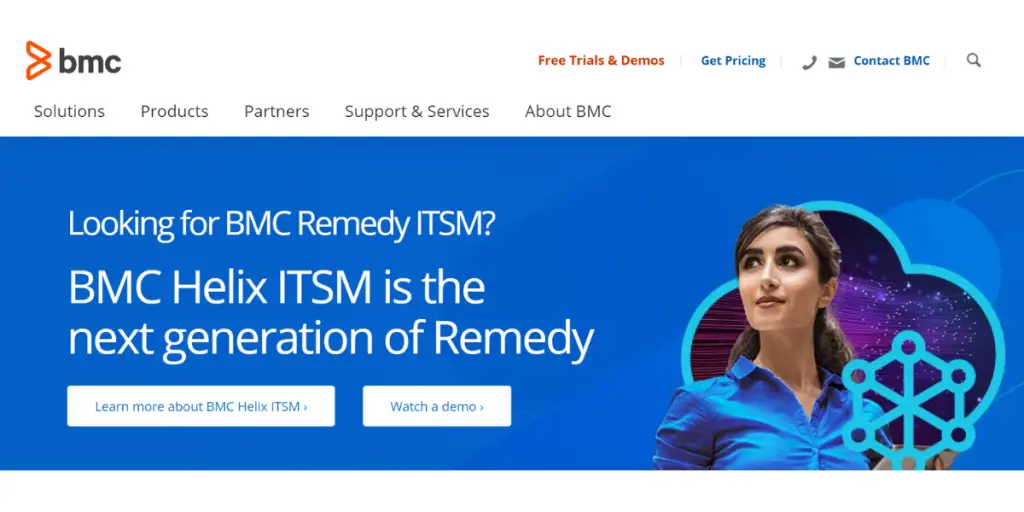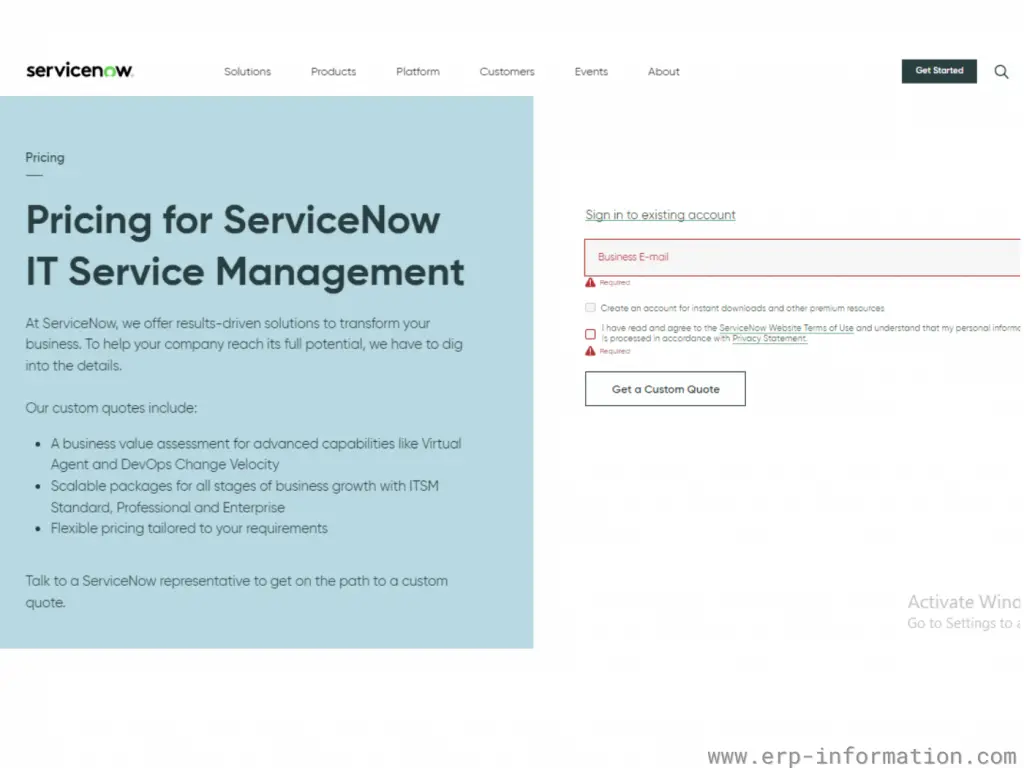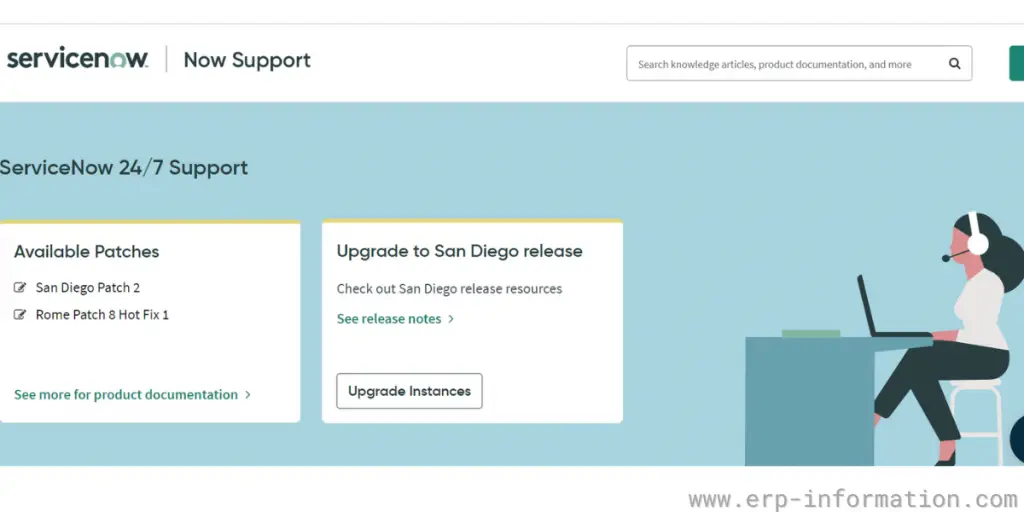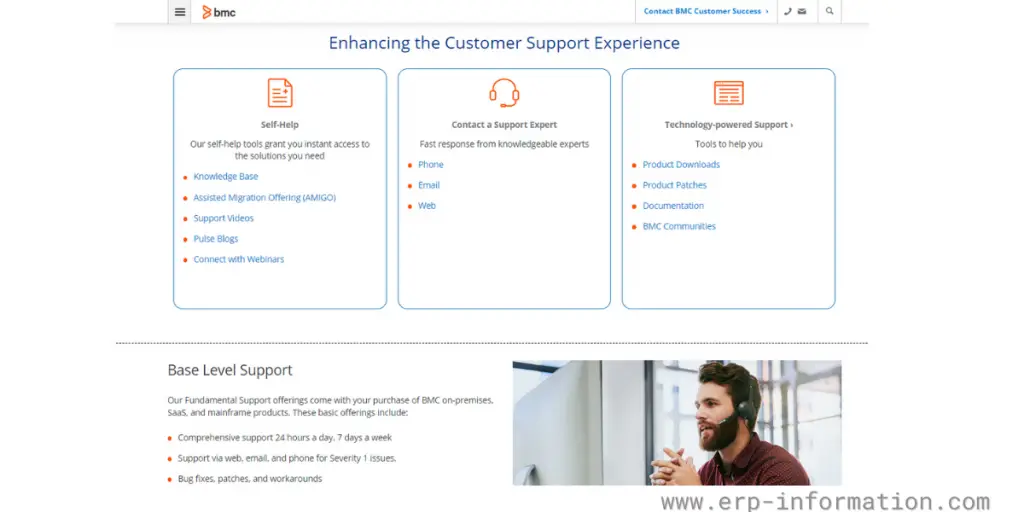ITSM solutions are crucial for businesses as they streamline IT operations, enhance efficiency, and ensure smoother service delivery.
They help in managing and resolving issues, handling requests, and maintaining a structured approach to IT services, ultimately boosting productivity and customer satisfaction.
So, choosing the right ITSM solution for your business is crucial. There are many options on the market, and it can be hard to know which one is the best fit for your needs.
In this post, we will talk about ServiceNow vs Remedy. Both ServiceNow and Remedy are leading ITSM solutions on the market. We’ll cover features, costs, and market share of software to help you make the best decision for your business.
Click here for similar kinds of Cloud ERP Software
New version: Service Now Tokyo
Release date: Q2 2023 / May 25
New version: Remedy ITSM 20.02.00
Release date: February 21, 2020
ServiceNow vs Remedy
What is ServiceNow?
ServiceNow is a leading ITSM solution on the market. It offers a wide range of features, and it is competitively priced. It is known for its ease of use and flexibility.
It is a versatile choice for businesses of all sizes and has a substantial market share. In addition, it offers a cloud-based solution.
What is Remedy?
The BMC Remedy is another leading ITSM solution on the market and a competitor of ServiceNow. It is known for its high quality and reliability.
BMC Remedy is also very cost-effective, making it a popular choice for businesses. Finally, Remedy has a significant market share, making it one of the most popular ITSM solutions.
As per Gartner, Remedy Corporation was taken over by BMC in 2002. It offers deployment of both on-premise and cloud-based solutions. BMC Remedy is the on-premise version, and BMC Helix ITSM is the next generation of Remedy, which means the cloud version.
Let us start comparing ServiceNow and Remedy.
Features
ServiceNow
- Change management
- Predictive intelligence machine learning
- Customer service management
- Field service management
- Workforce and process optimization
- IT operations management
- IT service management
- Resource and demand management
- Enterprise asset management
- Governance, Risk, and Compliance
BMC Remedy
- Incident and problem management
- Knowledge management
- Smart reporting
- BMC Helix multi-cloud service management
- Change management
- Release management
- Asset management
- BMC Helix digital workplace
- Configuration management
- Service request management
- Service level management
Deployment
ServiceNow and Remedy both offer a cloud-based solution. However, they differ in terms of their deployment options. ServiceNow provides an entirely cloud-based solution owned and operated by ServiceNow itself.
On the other hand, Remedy offers both an on-premise and cloud-based solution. Its partner, Remedy OnDemand, helps customers to host on-premise. Deployment options can be essential for businesses as they impact flexibility and control.
Delivery Model
ServiceNow runs on the Platform-as-a-Service model. In the PaaS delivery model, the provider manages the underlying infrastructure, and the customer is only responsible for the application.
That can be advantageous for businesses as it frees up resources companies would otherwise spend on managing infrastructure.
BMC Remedy runs on the Software-as-a-Service model. As a result, the provider manages the application and the underlying infrastructure in the SaaS delivery model. That can be advantageous for businesses as it requires less effort to set up and manage the solution.
Third-party Integration
ServiceNow offers robust support for third-party integration, providing extensive tools and APIs to facilitate seamless integration.
While BMC Remedy supports third-party integrations, it may not emphasize integration to the same extent as ServiceNow, potentially requiring more custom development or third-party solutions.
Pricing
ServiceNow offers a quote-based pricing model. Unfortunately, ServiceNow has not provided pricing details on its website. Therefore, businesses will need to contact ServiceNow for a custom quote.
BMC’s pricing can be more complex. To get remedy pricing, you need to contact the vendor directly.
Configuration and Accessibility
ServiceNow
- ServiceNow is a highly configurable solution. It enables customers to have a flexible configuration with simple tools. That means that businesses can tailor the solution to their specific needs.
Remedy
- The remedy is also a highly configurable solution. However, You should note that its configuration can be complex. With remedy software, you need BMC Change Advisory Board approval to do the configuration as per your needs.
Reporting and Analytics
ServiceNow provides advanced reporting and analytics features. It offers a wide range of reports and dashboards that can be customized to meet the specific needs of businesses. But it is a little bit complex to work with.
Remedy also offers reporting and analytics features. However, its reporting capabilities are not as advanced as ServiceNow’s. But it is easy to use.
Customer Support
ServiceNow
Remedy
ServiceNow provides 24×7 support with a dedicated customer success management team. It also includes product documentation and community support.
Remedy provides 24×7 support with multiple channels, including email, phone, and web. In addition, it improves customer support with self-help. You will get help through webinars, support videos, and blogs.
Maturity and History
BMC is an older and more established platform with a long history in ITSM, while ServiceNow is newer but quickly gaining popularity.
Customization and Complexity
Both platforms allow for customization, but BMC is considered more complex and suited for large enterprises, while ServiceNow has a simpler approach and provides customization.
Community and Ecosystem
ServiceNow has a larger user community and marketplace for pre-built applications and integrations compared to BMC.
Pros and Cons of ServiceNow and BMC Remedy
Pros of ServiceNow
- User-Friendly Interface
- Cloud-Based Efficiency
- Rapid Development
- Strong ITSM Capabilities
- Integration Expertise
- Thriving Community and Marketplace
Cons of ServiceNow
- Cost Considerations
- Cost Considerations
- Learning Curve
Pros of ServiceNow
1. User-Friendly Interface: ServiceNow boasts an intuitive and user-friendly interface, catering to IT professionals and end-users alike.
2. Cloud-Based Efficiency: Being cloud-based, it offers scalability, minimal infrastructure requirements, and accessibility from anywhere with an internet connection.
3. Rapid Development: ServiceNow’s low-code/no-code platform enables swift application development and customization, reducing deployment time.
4. Strong ITSM Capabilities: It excels in critical ITSM functions, encompassing incident management, problem management, change management, and asset management.
5. Integration Expertise: ServiceNow offers robust integration capabilities, ensuring seamless connectivity with third-party tools and systems.
6. Thriving Community and Marketplace: It hosts a vibrant user community and an extensive marketplace featuring pre-built applications and integrations.
Cons of ServiceNow
1. Cost Considerations: ServiceNow’s excellence comes at a price, which can be relatively high, especially for smaller organizations or those with budget constraints.
2. Complexity Challenge: While it provides extensive customization options, the complexity can be overwhelming for some users.
3. Learning Curve: Due to its feature-rich nature, there might be a steeper learning curve, particularly for newcomers to ITSM platforms.
Pros and Cons of BMC Remedy
Pros of BMC Remedy
- Established Pedigree
- Comprehensive ITSM Suite
- Tailored Customization
- Seamless Integration
- Hybrid Deployment Flexibility
Pros of BMC Remedy
- Complexity Challenge
- Cost Considerations
- Legacy Interface
- Resource-Intensive
Pros of BMC Remedy
1. Established Pedigree: BMC Remedy boasts a rich heritage in the ITSM domain, cementing its status as a mature and well-recognized platform.
2. Comprehensive ITSM Suite: It presents a comprehensive suite of ITSM features and modules, ideally suited for large enterprises grappling with complex requirements.
3. Tailored Customization: BMC Remedy excels in offering extensive customization capabilities, enabling organizations to fine-tune the platform according to their unique demands.
4. Seamless Integration: It seamlessly integrates with various other BMC products, which proves advantageous for organizations leveraging multiple BMC solutions.
5. Hybrid Deployment Flexibility: Organizations have the flexibility to opt for on-premises or cloud deployment options, allowing them to tailor infrastructure management to their needs.
Cons of BMC Remedy
1. Complexity Challenge: The depth and intricacy of BMC Remedy can pose challenges for smaller organizations or those seeking a simpler ITSM solution.
2. Cost Considerations: Similar to ServiceNow, BMC Remedy can be financially demanding, both in terms of licensing and implementation.
3. Legacy Interface: Some users may perceive the user interface and overall experience as having a more “legacy” feel compared to modern platforms.
4. Resource-Intensive: Implementing and maintaining BMC Remedy often necessitates dedicated IT resources and expertise.
Conclusion
So, we see that ServiceNow and Remedy are both popular ITSM solutions. They offer deployment options, delivery models, third-party integration, pricing models, configuration options, reporting and analytics features, and customer support channels.
When choosing an ITSM solution, businesses should consider their specific needs and requirements. Hope the post helped you understand better.
References:
